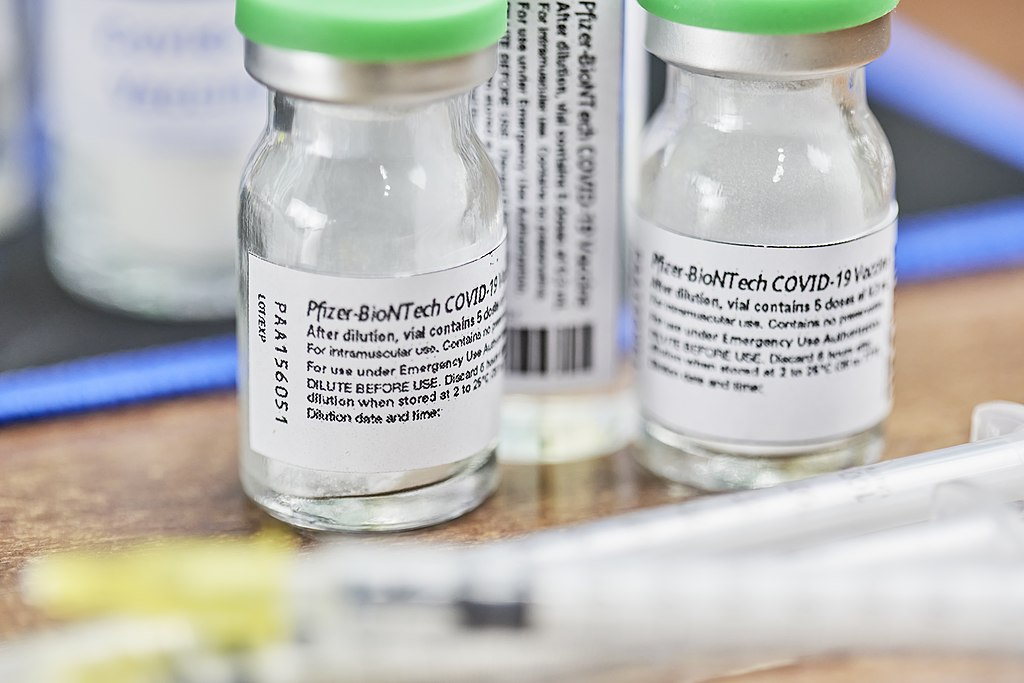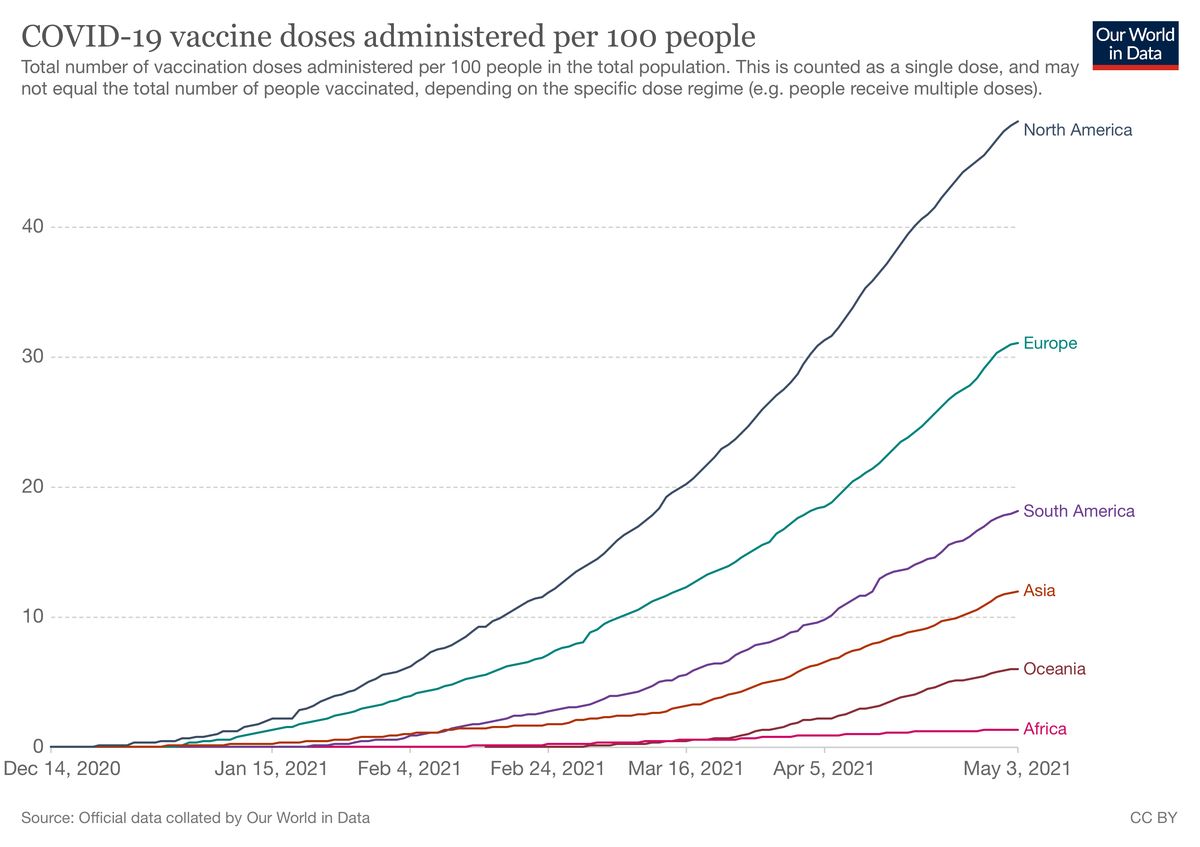As coronavirus outbreaks in places like India grow worse, many people want drug companies to share the secrets behind their Covid-19 vaccines. So far, several rich countries are fighting efforts to share this information.
Over the last year, scientists worldwide have worked incredibly hard to develop vaccines that protect against the coronavirus. Now there are several vaccines that work well.

(Source: Tim Reckmann [CC BY 2.0], via Wikimedia Commons.)
Drug companies, and many countries, have spent huge amounts of money developing these vaccines. Scientists came up with new materials and new ways of doing things to create the vaccines. Making the Pfizer/BioNTech vaccine, for example, requires 280 items from 19 different countries, as well as many special methods.
Most drug companies have legally protected their Covid-19 vaccines with patents to keep other companies from copying their hard work.
😕
This image has not been loaded because of your cookie choices. To view the content, you can accept 'Non-necessary' cookies.
Drug companies, and many countries, have spent huge amounts of money developing these vaccines. Scientists came up with new materials and new ways of doing things to create the vaccines. Above, European politicians tour a Pfizer factory in Belgium.
Now many people say these companies should give up their patents for a while. This “patent waiver” would allow others to freely copy their vaccine-making process temporarily. Many people believe this will help end the world’s coronavirus outbreaks more quickly.
Worldwide, the numbers of people who’ve been vaccinated is wildly different. In rich countries like the US, over 50% of the people have gotten at least one vaccine dose. In Africa, less than 1% of the people have gotten a shot.
There are programs, like COVAX, which bring vaccines to poorer countries. Some drug companies and countries have also given away vaccines. But the amounts given are only enough to protect a small fraction of the people who need vaccines.

(Source: Our World in Data.)
Based on the current rate of vaccinations, experts say it could take some poor countries until sometime in 2023 just to vaccinate 60% of their people.
That’s clearly bad news for those countries. But it’s also bad news for the world. When the coronavirus is allowed to spread, it can change over time.
Coronavirus “variants” are slightly changed versions of the virus. Some variants can spread more easily, and vaccines may not offer as much protection against them. Letting new variants develop could put vaccinated people at risk again.
😕
This image has not been loaded because of your cookie choices. To view the content, you can accept 'Non-necessary' cookies.
Experts say it could take some poor countries until sometime in 2023 just to vaccinate 60% of their people. Above, a health care worker in South Africa gets vaccinated. Less than 1% of South Africa’s people have been vaccinated.
Now India and South Africa are leading a group of countries in asking for patent waivers for Covid-19 vaccines. So far, drug companies and countries like the United States, the United Kingdom, and the European Union (EU) have fought this idea.
They say that if drug companies are forced to share their work for free, they won’t want to develop other vaccines in the future. Still, drug companies aren’t exactly losing money. Pfizer expects to make $26 billion this year from its Covid-19 vaccine.
😕
This image has not been loaded because of your cookie choices. To view the content, you can accept 'Non-necessary' cookies.
Some people say poorer countries can’t understand the complicated processes needed to make the vaccines. Historically, that hasn’t been true. Above, Covid-19 vaccines being produced at the Serum Institute of India, the world’s largest vaccine making company.
Some people say poorer countries can’t understand the complicated processes needed to make the vaccines. Historically, that hasn’t been true. The world’s largest vaccine making company is in India. In some cases, India has developed new and cheaper ways to make complicated vaccines.
US President Joe Biden is under pressure from both sides. Drug companies want their vaccine patents protected, but many Americans believe helping the rest of the world at this difficult time is the right thing to do.
😕
This image has not been loaded because of your cookie choices. To view the content, you can accept 'Non-necessary' cookies.
US President Joe Biden (above) is under pressure from both sides. Drug companies want their vaccine patents protected, but many Americans believe helping the rest of the world at this difficult time is the right thing to do.
The World Trade Organization (WTO) is a group that deals with many international business matters, including making sure patents are respected. The WTO is meeting today and tomorrow. Patent waivers are sure to be discussed. Many people will be carefully watching the US position at this meeting.
Did You Know…?
Even if other countries are allowed to copy Covid-19 vaccines, it won’t solve any problems right away. It will take time, money, and a huge effort to begin making vaccines in other places.
Update:
On May 5, Mr. Biden’s government said that even though it believes strongly in protecting patents, it supports a patent waiver for Covid-19 vaccines to deal with the “global health crisis” caused by the coronavirus. Now, the EU says that it is also “ready to discuss” a patent waiver for the vaccines.
